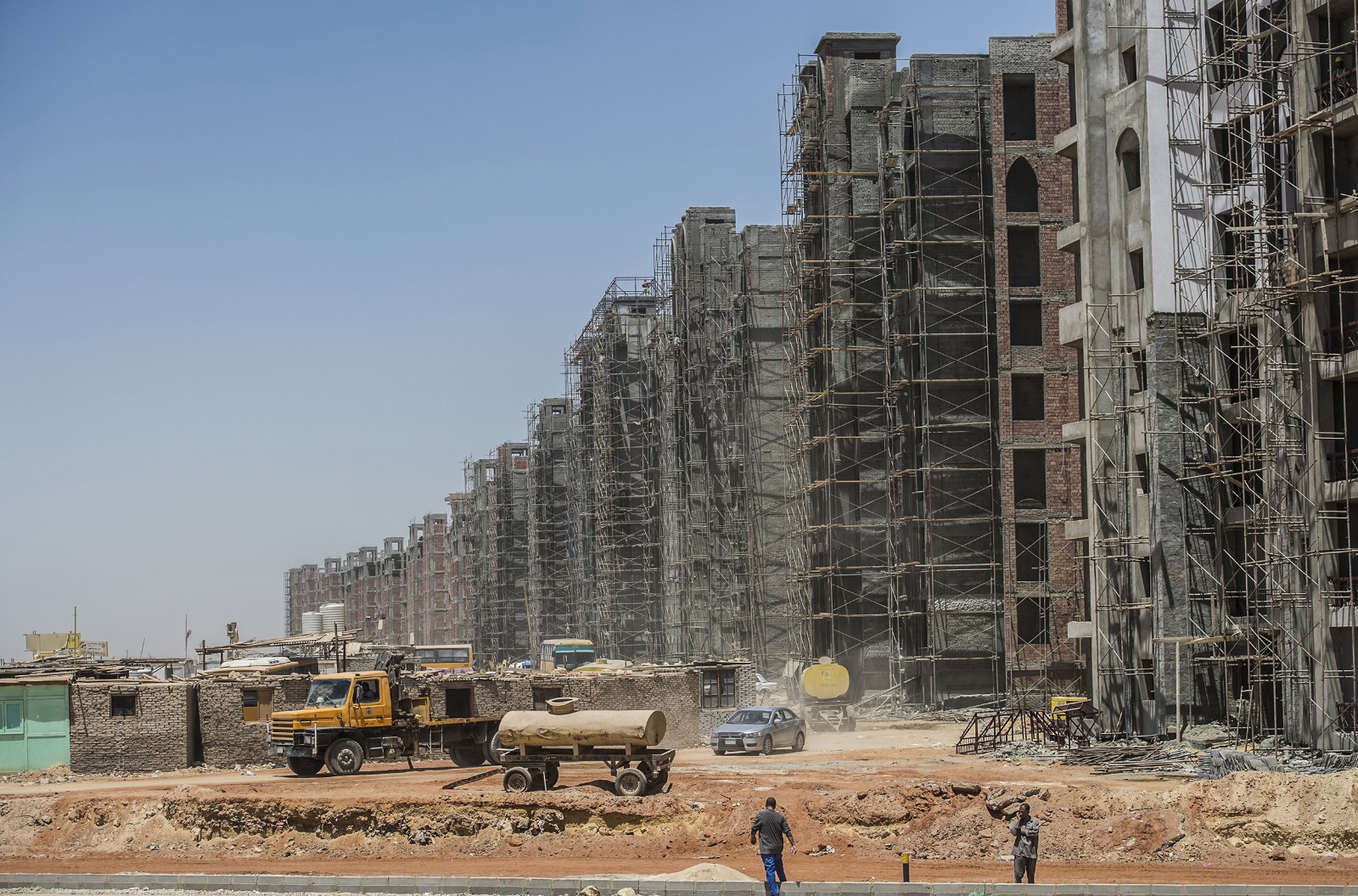Contracting + construction players could get a liquidity boost thanks to new gov’t regulations

Will new rules for designating contracting companies help stymie the industry's losses? Last year, the government issued amendments (pdf) to the regulations governing how companies in the contracting and construction industries are legally classified. These amendments, which came at the request of the Egyptian Federation of Construction and Building Contractors, are designed to provide some level of protection to contracting and construction firms reeling from cost pressures and a weaker EGP. Now, the federation has begun replacing firms’ licenses to reflect these changes, with some 26k companies expected to see a change in how they are classified, industry sources we spoke with told us.
What are these new rules? For decades, members of the Federation of Construction and Building Contractors have been placed into tiers that, among other things, determine the maximum value of projects these companies can bid on in tenders. The new decision changes some of the criteria that determine the companies’ tier classification, which in turn allows them to bid on higher value projects. The tier assessment is based on nine core principles:
- Paid-in capital;
- Industry experience;
- Size of technical staff;
- Size of financial staff;
- Value of the largest completed contract in the past five years;
- Value of all completed contracts in the past five years;
- The most recently approved budget;
- Proof of financial solvency from a bank;
- Inventory of owned technical equipment.
Companies now have one fewer requirement to be moved into a higher tier: Previously, the regulations that govern the federation required companies to raise their paid-in capital by some 50% to qualify for a higher tier classification. The changes waive this requirement due to the current macroeconomic climate, which has brought headwinds for the sector, federation head Mohamed Sami Saad told Enterprise. Now, moving to a higher tier is determined by the value of the contracts they have completed successfully in the past five years.
And firms can increase their working portfolio value to help them ramp up revenues: The changes increase the upper limit on the value of new projects companies are allowed to bid on by some 80% in a bid to help alleviate the pressures on the sector. Tier two companies, for example, were previously allowed to bid for projects worth EGP 100 mn, but will now be able to compete for projects worth EGP 180 mn without any additional costs to contractors, Saad says. The decision, which takes into account the liquidity crisis in the sector is expected to usher in a boon for contractors by granting a larger pool of companies access to new projects, Saad added.
Chalk it up to inflation: An increase in building material costs, inflation, and the EGP devaluation are behind these changes, Saad told Enterprise. Because input costs have increased, companies that previously qualified for, say, a fifth tier classification are likely to have taken on more expensive projects in the past year — but may have faced difficulties in qualifying to a higher tier due to the capital increase requirements. At the heart of this decision is a desire to protect contractors against late fees and to offer them room to expand their businesses, Saad explained.
The construction sector is rife with project delays and late payments: Contractors have for a while now been requesting extensions on contracted work for national projects and asking for payments for their work to be expedited, Saad tells us.
Liquidity is also a major problem that the new rules aim to address: FX shortages and liquidity challenges are two of the most significant components of the problem, according to Saad and federation Secretary General Hisham Ahmed Yousri. “We thought that by changing classification rules and raising limits on values contractors are allowed to work with, it would absorb a large part of the current crisis and provide more opportunities,” Yousri said.
Some EGP 40 bn worth of compensation could be on its way to contractors: The decision to revisit how contracting companies are classified and the issuance of the contractors’ compensation bill have been great signals on the government’s part to support the sector, Saad told us.
Limited financing options will be a huge concern for contractors heading into 2023: Compared to the widely anticipated rising cost of raw materials, land prices and slowing consumer demand, declining financing options for new construction is an unsung problem for the sector that is expected to be a major sticking point in 2023.
But the new decision to re-classify companies could pave the way for SMEs to grab a piece of the pie, President of Al-Bustani Group for Real Estate Development Mohamed El Bustani tells us. Re-classifying these companies could become a catalyst for greater competition in the sector, especially among medium-sized companies, and give them new room to grow, according to Daker Abdellah, a board member at the Egyptian Federation of Construction and Building Contractors.
And for some it’s already been a lifeline: The Housing Ministry decision has saved a number of small companies from closing their doors, El Bustani tells us. Increasing the volume of business these companies are allowed to take on offers a lifeline to these businesses by allowing them to enter contracting agreements for larger projects and government tenders, he adds.
Your top infrastructure stories for the week:
- Italy has reportedly submitted a proposal to the Egyptian Electricity Transmission Company to work on a joint USD 2.8 bn electricity interconnection project between the two countries.
- It’s shaping up to be another year of supply chain bottlenecks as port workers all over the world protest unfair wages.